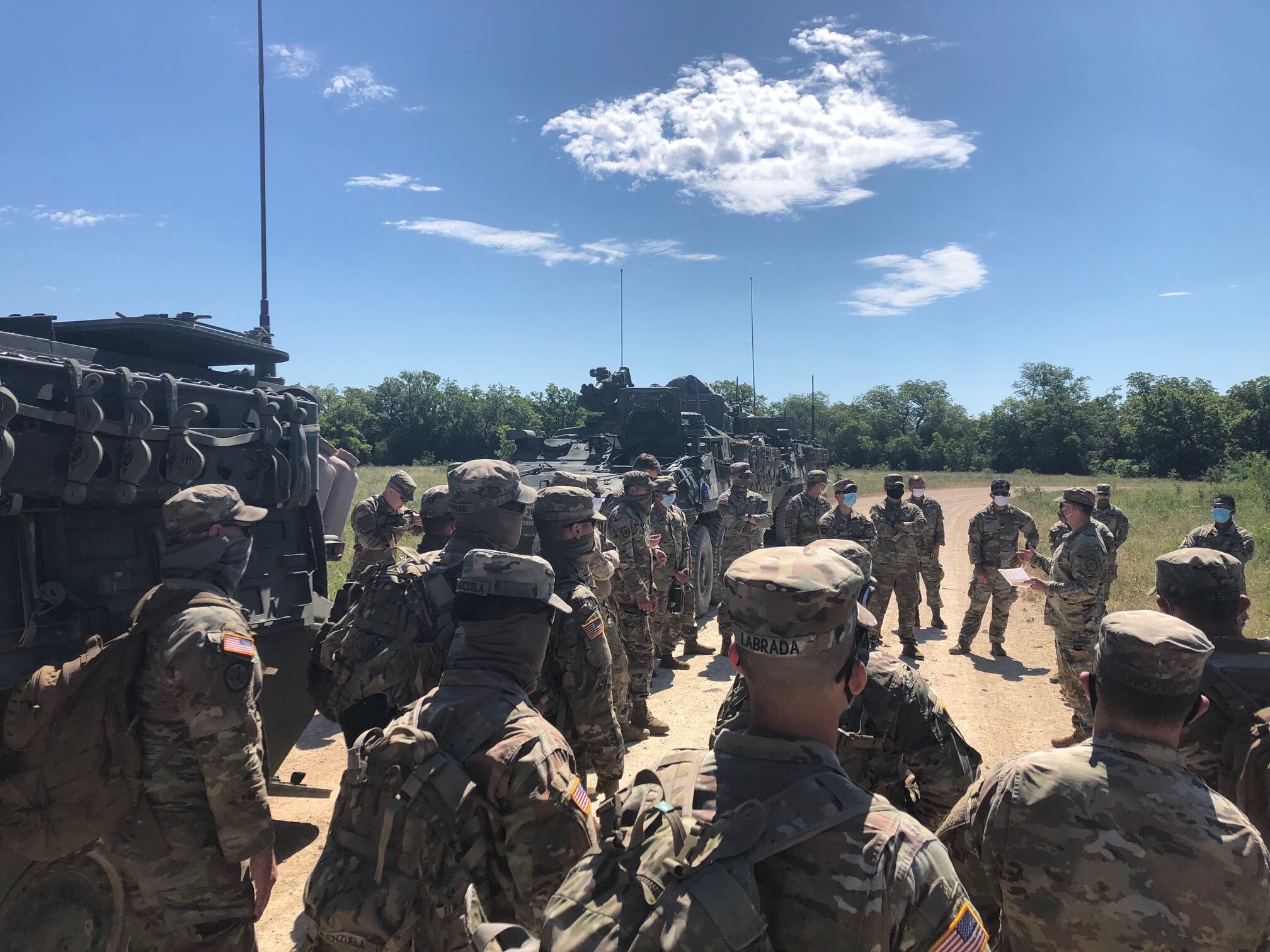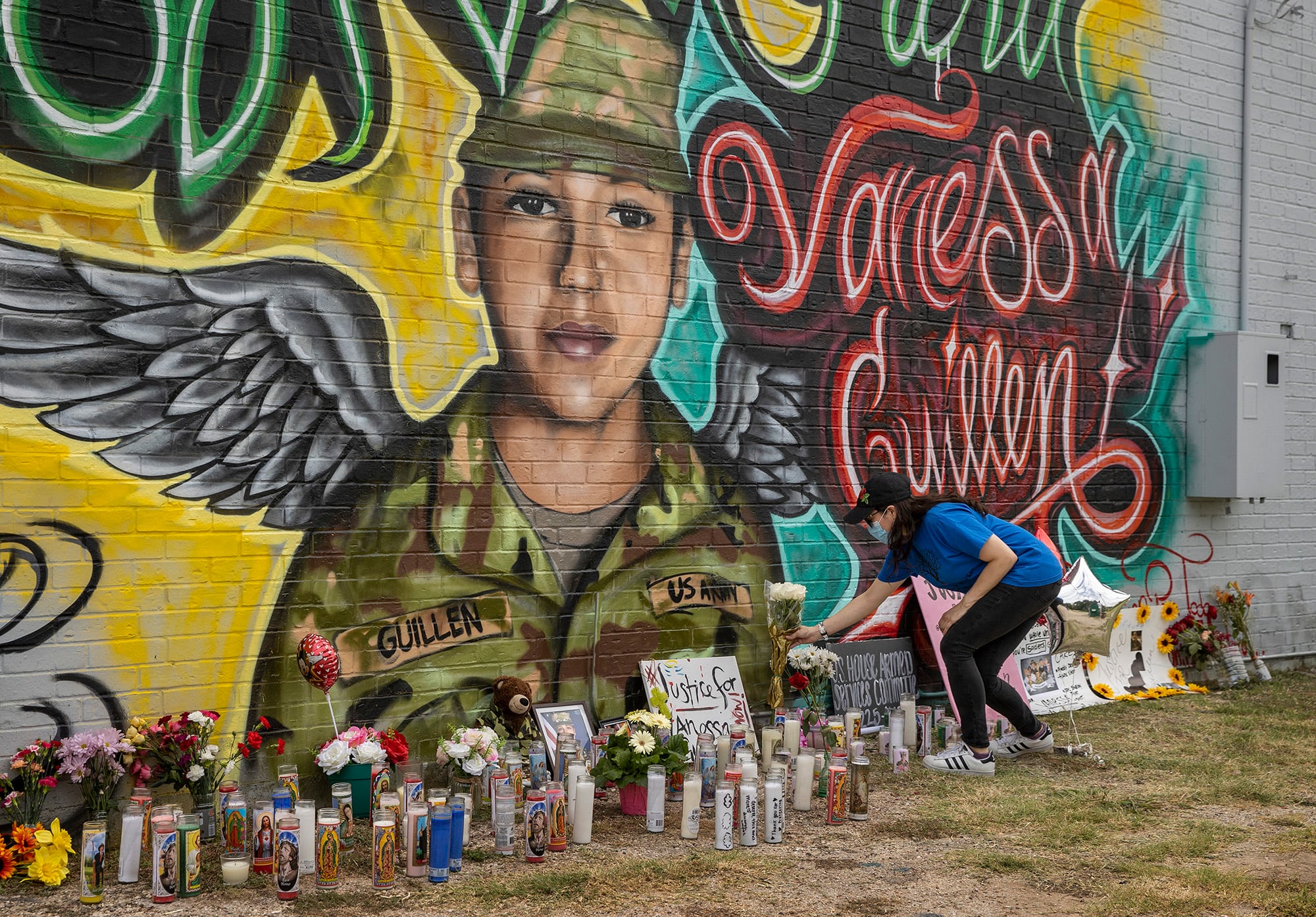When young people join the military, they join to fight America’s enemies. When the oath they take reads “against all enemies foreign and domestic,” none thought the domestic enemy would be someone in their chain of command. For those who are women, they certainly never thought the enemy would share the same gender much less the uniform. But when Lt. Col. Betsy Schoeller, who serves in the Wisconsin Air Guard, posted on Facebook that “[s]exual harassment is the price of admission for women into the good ole boy club,” she exposed the depth of the problem. For far too many women veterans, however, pointing this out is as useless as taking a thermometer to the sun.
Before she mysteriously disappeared, 20-year-old U.S. Army Spc. Vanessa Guillén reportedly told her family and friends that she was being sexually harassed by someone in her command. However, her command has concluded thus far that no link exists between her death and a sexual harassment committed by one of her superiors. This comes as no surprise to victims of sexual assault who’d seen the “absence of evidence is evidence of absence” standard applied more often than not. This will remain a problem until sexual predators begin confessing and turning themselves in, which isn’t likely.
RELATED

What’s the answer? For survivor advocates, military leaders, lawmakers, media, and the public, the answer to how best to stop military sexual assault and harassment remains elusive. The Military Justice Improvement Act of 2017, which called for removing a commander’s authority to dispose of certain felony-level charges and placing the duty to investigate outside the command, has repeatedly died in Congress. Other restrained, more gradual measures had been taken over the years. But none of those measures had even come close to helping Guillén or thousands of others who found no closure.
One group has decided the tranquilizing luxury of gradualism is no longer acceptable. A grassroots effort is gathering signatures for a “National Women Veterans & Service Women Sign-On Letter,” under the rallying cry #JusticeForVanessaGuillen. The group’s organizers joined the Guillén family in calling for a congressional investigation into Guillén’s case. Their petition also demands the resignation of every military leader in her chain of command, the closure of Fort Hood, and a “halt to all enlistments in the military until justice is served”.
It’s not hard to imagine the reaction of those who see these demands as impractical and unreasonable. Many will foreseeably argue that what happened to Guillén, while tragic, was an outlier in terms of perceived danger to all women in the military. But one person who knows better than most made clear his views on the threat the problem presents to our military. Former Defense Secretary James Mattis said: “By its nature, sexual assault is one of the most destructive factors in building a mission-focused military.”
One of the most destructive factors. This from a man who isn’t exactly known for exaggerating threats to our military.
Any proposed measures seen as drastic must be balanced against the arguably more drastic nature of the chronic problems associated with Fort Hood, in particular, and the military, in general. Fort Hood has earned the dubious distinction of having “the most sexual assaults of any Army post over from 2013 to 2016.” The base’s reputation hit a new low when a member of the Fort Hood Sexual Assault Response Team was arrested for “abusive sexual contact, pandering, assault and maltreatment of subordinates” and “forcing a subordinate into prostitution.”
RELATED

Yet, it’s the “system” that still gets the benefit of the doubt in Guillén’s case. We know that she was bludgeoned to death, dismembered, and buried, but some still insist on clear and convincing evidence before believing she was sexually harassed. Whether cognitive dissonance, willful disregard, or a combination of both lie at the heart of the problem, Guillén’s ordeal that ended in her murder has hit a tipping point.
To be clear, the calls to fire military leaders, close Fort Hood, and stop women from enlisting into the military aren’t simply about Guillén — they’re about survival, in the eyes of a growing number of people. What happened to her is emblematic of a larger, systemic problem within the armed forces that, as Mattis warned, threatens mission readiness. Victims of military sexual assault don’t fear the sharks and other predators in uniform that make the waters dangerous. They fear the water itself — military culture — which has made sexual predation difficult to confront, much less avoid.
However, difficulty is the excuse that history never accepts. Fighting wars is difficult. Training for wars is difficult. Preparing young people for the rigors of training for wars is difficult. Yet, our military finds a way to get it done. The problem is military culture is shaped by the worst behavior its leaders are willing to tolerate, and myriad violations of a sexual nature have been tolerated as “the price of admission” for far too long.
The message to the White House, Congress, and the Pentagon is clear: change is imperative, starting with the culture and those leaders who are incapable of protecting our young service members from the enemy within.
Sherman Gillums Jr., Chief Warrant Officer 2, U.S. Marines retired.
Editor’s note: This is an Op-Ed and as such, the opinions expressed are those of the author. If you would like to respond, or have an editorial of your own you would like to submit, please contact Military Times managing editor Howard Altman, haltman@militarytimes.com.





